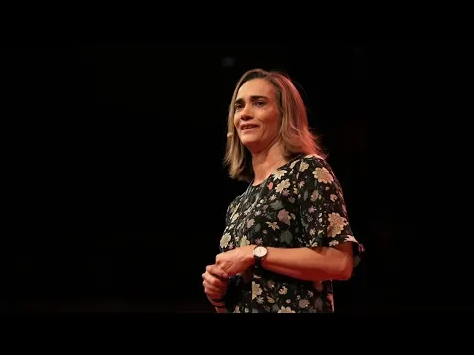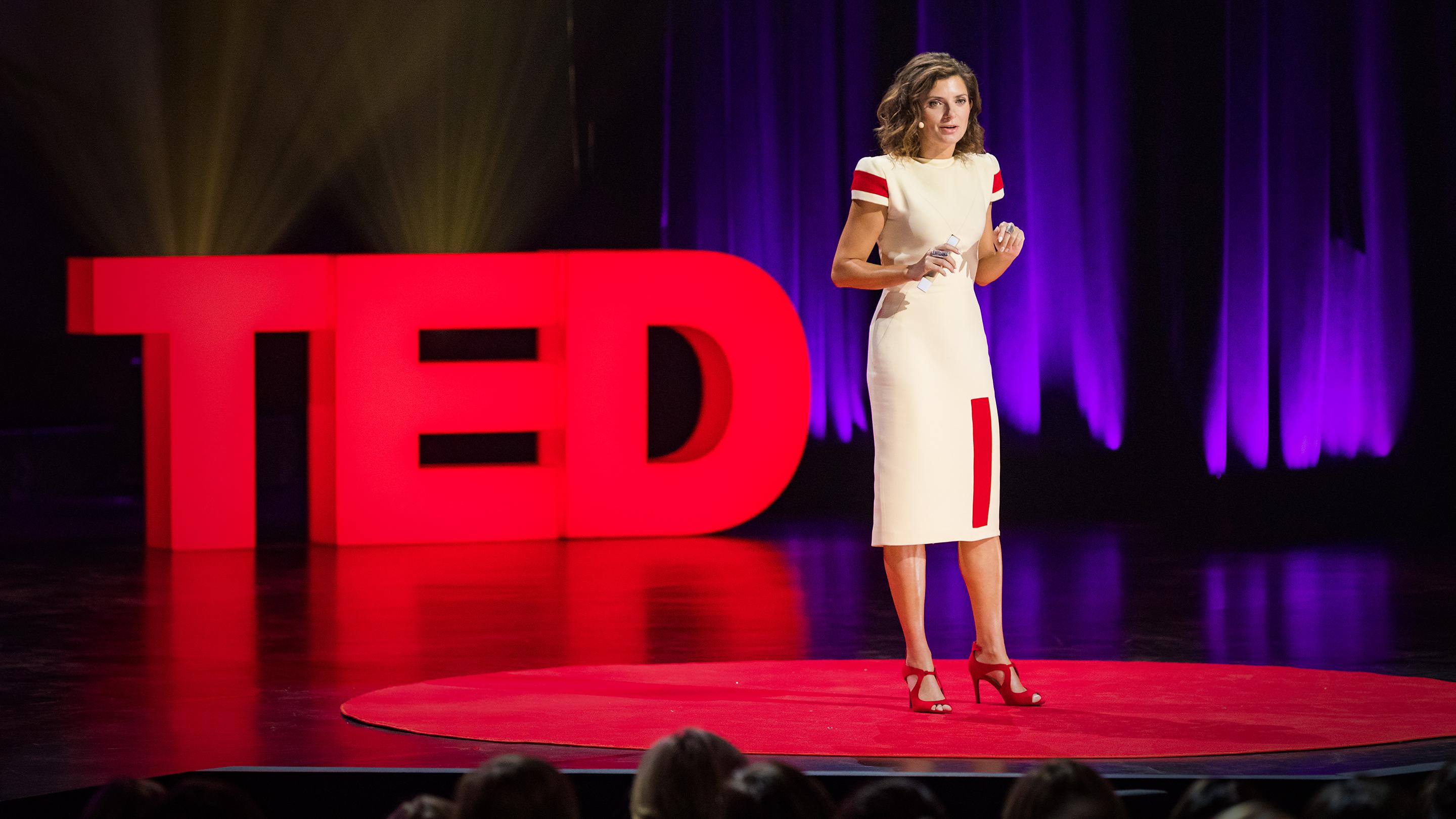The landscape of life, woven with peaks of joy and valleys of adversity, often leaves us searching for answers during our most challenging moments. At the crossroads of personal tragedy and academic research stands Dr. Lucy Hone, New Zealand's award-winning resilience expert. Famed for her illuminating TED Talk, which stands proudly among the top 20 TED Talks, Dr. Hone has pioneered the realms of well-being science and
resilience psychology.

Her esteemed position as an adjunct at the University of Canterbury and her role as the director of the New Zealand Institute of Wellbeing & Resilience is a testament to her profound influence in this field. However, Dr. Hone is not just an academic researcher; she's a beacon of resilience in her own right. The tragic road accident that claimed the life of her 12-year-old daughter, Abi, thrust her into the very core of the tough times she often spoke about.
Drawing from this heart-wrenching personal experience and her vast academic knowledge, Dr. Hone penned her best-selling book on coping with loss. Her secrets of resilient people, detailed in her literature and TEDx talk, offer useable tools for those
dealing with grief, guiding them back to the driver's seat of their lives. Her work with Maven underscores the commitment to equipping individuals with strategies to navigate the complexities of life's adversities.
3 Coping Strategies to Support You
The core of Dr. Lucy Hone's teachings revolves around three primary coping strategies. These strategies, derived from her research and personal experiences, are meant to provide solace and strength to individuals during their darkest times:
1. Adversity is Part of Life
Adversity is common and understanding that suffering is a part of life helps cope with tough times.
The narrative of human history is painted with stories of adversity. From personal hardships to collective challenges, adversity has been a constant companion. Dr. Hone accentuates the importance of accepting this as a fundamental truth.
When we attempt to shield ourselves from this reality or view our challenges as punishments or isolated incidents, the weight of the suffering intensifies. Conversely, by accepting adversity as a universal human experience, we shift our perspective. This shift doesn't belittle individual experiences but situates them within a broader context, offering a degree of comfort.
Dr. Hone suggests a simple exercise: Whenever faced with adversity, remind yourself of its omnipresence. Understand that countless others have faced similar or even graver challenges, and many have found their way through. Their stories can serve as beacons of hope in our darker moments.
2. Focus on What's in Your Control
Resilient individuals focus on what they can change and accept what they cannot, seeking the positive aspects of life.
This principle, often echoed in various philosophical teachings, holds a special place in Dr. Hone's guidance. It's about mastering the art of discernment. Every situation presents elements we can control and those we can't. Distinguishing between the two is crucial.
For example, in the aftermath of a personal loss, we can't change what happened, but we control how we respond, the memories we cherish, the support systems we lean on, and the rituals we create to honor our loved ones.
By focusing on actionable aspects, we not only reclaim power over our lives but also channel our energies effectively. Dr. Hone recommends regular introspection: At the end of each day, list down things that were within your control and how you responded to them. Over time, this practice can transform one's perspective, fostering proactive rather than reactive responses to challenges.
3. Resilience is Not Fixed
Adopting basic strategies and a growth mindset allows simultaneous grieving and moving forward.
Resilience is a dynamic quality, and Dr. Hone's life and work are testimonies to this. Just as muscles strengthen with exercise, our resilience muscle can be built with consistent effort and the right strategies.
One pivotal concept here is the 'growth mindset,' popularized by Dr. Carol Dweck. It's the belief that abilities and coping mechanisms can be developed through dedication and hard work. Dr. Hone emphasizes the importance of nurturing this mindset, especially in the context of grief and adversity.
She recommends practices like journaling to monitor and guide one's emotional journey, seeking therapy or counseling to provide structured guidance, joining support groups to share and learn from collective experiences, and setting small, achievable goals that foster a sense of accomplishment and forward momentum.
In essence, the journey of resilience is continuous. It requires patience, commitment, and the belief that even in the midst of profound grief, growth and healing are possible.
Learn Resilience for Coping with Adversity

In light of the invaluable coping strategies she has shared, Dr. Hone's course,
A Better Way To Grieve, on Maven stands out as an essential resource for anyone seeking to cultivate resilience. Maven, renowned for its expert-driven content, offers learners an unparalleled opportunity to gain insights directly from pioneers in various fields.
Dr. Hone's course not only delves into her three key strategies but provides actionable and useable tools that can be integrated into daily life. This practical approach, combined with her profound personal and
professional insights, makes her Maven course a must-attend for anyone grappling with adversity or keen on
building resilience.
Frequently asked questions
1. What are the three secrets of resilient people by Lucy Hone?
Dr. Lucy Hone, a renowned resilience expert and director of the New Zealand Institute of Wellbeing, has shared her insights on the secrets of resilient people in her award-winning TED Talk. The three secrets are:
Recognizing that adversity is a universal part of human life.
Differentiating between things one can change and those they can't, focusing on what's within their control.
Understanding that resilience can be cultivated and is not a fixed trait.
2. How many stages of grief are there and what are they?
Traditionally, the grieving process is described through the Five Stages of Grief, developed by Elisabeth Kübler-Ross:
Denial
Anger
Bargaining
Depression
Acceptance
It's important to note that everyone's grieving process is personal, and not everyone will go through all these stages or in this order.
3. What makes someone resilient?
Resilience is an interplay of various factors, both intrinsic and extrinsic. Key elements include:
Positive Mindset: A belief in one's ability to overcome challenges.
Adaptability: Flexibility in the face of changing scenarios.
Growth Mindset: As emphasized by thought leaders and academic researchers, it's the belief that one's abilities can be honed with effort and experience.
Support Systems: Leaning on loved ones, professional counselors, or support groups can be invaluable.
Focused Action: Like Dr. Hone suggests in her resilience research, focusing on what's within one's control and taking actionable steps is crucial.
Continuous Learning: Engaging with resources like Dr. Lucy's best-selling book,
podcasts, and even the most-watched TED Talks on resilience can offer usable tools and insights.
Dr. Hone's work, recognized by platforms like the BBC, ABC, CBS, The Washington Post, and Psychology Today, serves as a beacon for many navigating tough times, proving that resilience is both an art and science.






